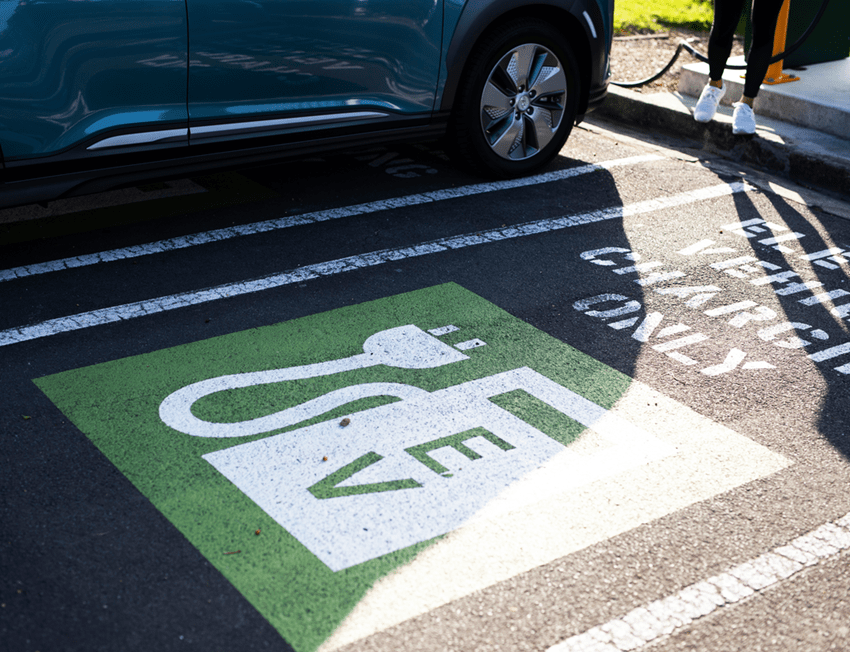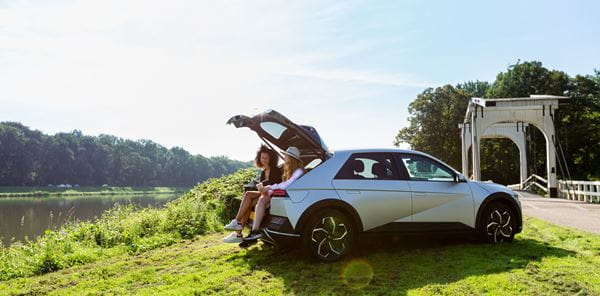
Has the switch to zero-emission company cars started?
To put it in racing terms: electric cars have left for the traditional warm-up lap towards the real start of the race. Minister of Finance Vincent Van Peteghem has prepared concrete plans with fiscal measures to make company cars greener (faster). So let’s hope it will not be a false start.
We could already conclude from last year’s coalition agreement that the government parties are considering retaining only tax benefits for emission-free company cars from 2026. Last week, the Minister of Finance presented concrete proposals to realize this ambition. It is now clear that leased cars are leading the race towards a green fleet. We appreciate this recognition as a leverage by the government, and we applaud the ambition. Certainly, because the government – by working out the proposal now – is creating a clear and stable framework for employers and leasing companies.
We have listed the seven most important points in the proposal.
1. Only the WLTP values for calculations
Anyone ordering or leasing a new car from 1 September this year can only use the WLTP CO2 emissions in the calculation. This applies to both tax deduction options and Benefit in Kind. If you order the car before September 1, 2021, you can choose between NEDC 2.0 and WLTP, of course when both values are available. The government therefore only looks at the date on the order form. Registration date and delivery date no longer matter.
2. The mobility budget will change slightly
The application of the WLTP values also has an impact on the calculations within the mobility budget. In the first pillar of the mobility budget, as from 1 September this year, the CO2 ceiling will increase from 95 to 120 grams/kilometer. Which benefits the choice of the employee who returns his company car.
3. Financial support if you install charging stations
According to the proposal now on the table, the federal government, together with the regional governments, wants to expand the charging infrastructure in Belgium. To this end, it provides tax incentives for individuals and companies:
- Companies that install charging stations before 31/12/2022 and also make them available for to the public – in return for payment, of course – can contribute the cost of this up to 200% for tax purposes. Companies that do this between 1/1/2023 and 31/8/2024 get ‘only’ 150% deduction.
- Private individuals who have a charging station installed at home can deduct these costs from their taxes up to a maximum of 1,500 euros.
4. Less tax benefits for cars with combustion engines
As of assessment year 2026 (i.e. income 2025), tax deduction for new vehicles purchased after January 1, 2023, will be systematically phased out and disappear completely in 2028. For vehicles purchased before January 1, 2023, the current rules will continue to apply.
5. Maximum deduction of 50% for plug-in hybrids
There is also a major change for plug-in hybrids. For models purchased after January 1, 2023, only a maximum deduction of 50% will apply to petrol and diesel consumption. This rule will remain in force until January 1, 2026.
6. Tax benefits for zero-emission company cars only
This is probably the most striking measure. Whoever buys a new car after January 1, 2026, can only enjoy tax benefits if this car is emission-free. In other words: in the current offer, only fully electric company cars are still 100% tax deductible.
One exception to this rule: for light trucks with a classic combustion engine, the tax deduction will be limited to 50%.
7. The CO2 contribution and BIK formulas remain unchanged
We end with good news for the users: the current CO2 contribution and the Benefit in Kind will not change (except for the impact of the calculation with WLTP CO2 emissions as explained in point 1).
**This is an advanced proposal by the Minister. Only the Council of Ministers and the Parliament still have to give their approval. As a leasing company, we support this ambition and are of course prepared to co-invest in such a project. In fact, we are already working on it today, with our own fleet that will be completely emission-free by the end of 2021. Because the transition does not happen overnight.
We will of course keep you informed of all developments regarding this proposal.**






